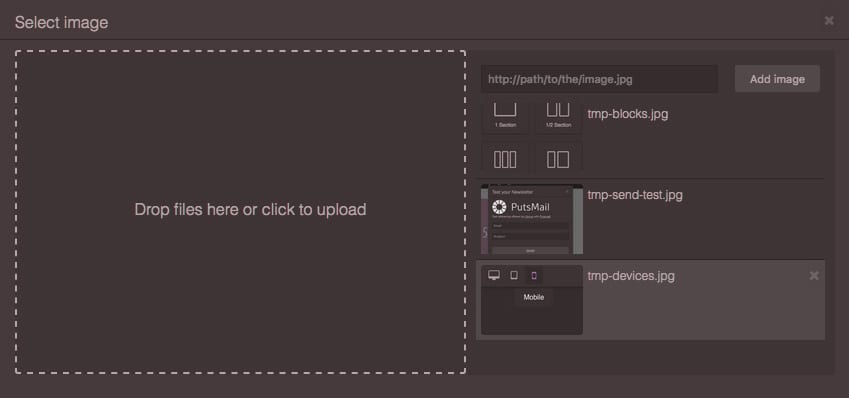GrapesJS is a free and open source Web Builder Framework which helps you building HTML templates to be used inside sites, newsletters and mobile apps. Mainly GrapesJS was designed to be used inside a CMS to speed up a creation of dynamic templates. To better understand this concept check the image below
Generally any 'template system', that you'd find in various applications like CMS, is composed by the structure (HTML), style (CSS) and variables, which are then replaced with other templates and contents on server-side and rendered on client.
This demos show examples of what is possible to achieve: Webpage Demo - http://grapesjs.com/demo.html Newsletter Demo - http://grapesjs.com/demo-newsletter-editor.html
- Blocks
- Style Manager, for component styling
- Layer Manager, that comes handy with nested elements
- Code Viewer
- Asset Manager, for uploading and managing images
-
Local and remote storage
-
Default built-in commands (basically for creating and managing different components)
You can get GrapesJS with npm install grapesjs or via git clone https://github.com/artf/grapesjs.git.
For development purpose you should follow instructions below.
GrapesJS uses RequireJS to organize its files inside src folder and Grunt for build them to dist
Clone the repository and enter inside the folder
$ npm install -g grunt-cli
$ git clone https://github.com/artf/grapesjs.git
$ cd grapesjsInstall all necessary dependencies
$ npm installBuild GrapesJS
$ npm run buildLaunch server, which also gonna watch some files, and try out the demo on localhost:8000
$ npm startTests are already available inside browser on localhost:8000/test
If Grunt is already installed globally you could change the port by using grunt dev --port 9000
JQuery is the only hard dependency so you have to include it before using GrapesJS
<script src="http://code.jquery.com/jquery-2.2.0.min.js"></script>After that include scripts from GrapesJS with all your configurations
<link rel="stylesheet" href="path/to/grapes.min.css">
<script src="path/to/grapes.min.js"></script>
<div id="gjs"></div>
<script type="text/javascript">
var editor = grapesjs.init({
container : '#gjs',
components: '<div class="txt-red">Hello world!</div>',
style: '.txt-red{color: red}',
});
</script>You could also grab the content directly from the element with fromElement property
<div id="gjs">
<div class="txt-red">Hello world!</div>
<style>.txt-red{color: red}</style>
</div>
<script type="text/javascript">
var editor = grapesjs.init({
container : '#gjs',
fromElement: true,
});
</script>For more practical example I suggest to look up the code inside this demo: http://grapesjs.com/demo.html
Check the getting started guide here: wiki
API References (draft) could be found here: API-Reference
$ npm testGrapesJS is built on top of this amazing open source projects:
- Backbone - gives Backbone to web applications
- Backbone.Undo - a simple Backbone undo-manager
- Keymaster - keyboard shortcuts
- CodeMirror - versatile text editor
- Spectrum - no hassle colorpicker
- FontAwesome - the iconic font and CSS framework
The project is sponsored by
If you like the project support it with a donation of your choice.
BSD 3-clause








